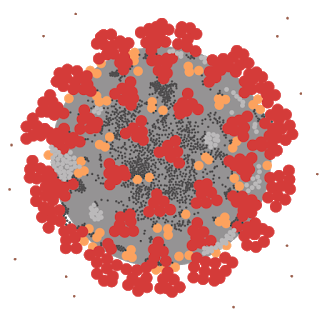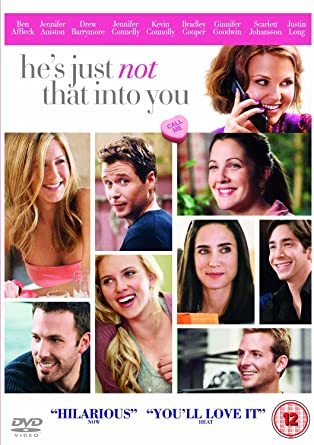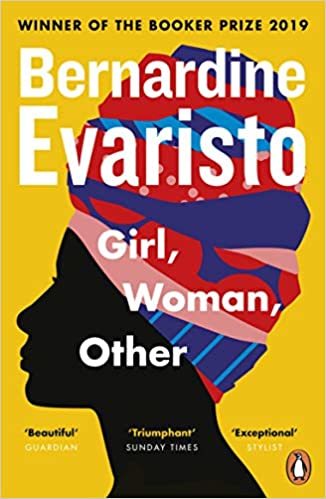Mary Hoffman's Blog, page 4
September 28, 2020
Saying the same thing twice
Tautology is a concept taken from logic. In everyday language it means saying the same thing twice. You may think you never do this but it is quite common to say "ATM machine," "ID card," "Please RSVP." All of these are tautologies. ATM = Automated Teller Machine; ID stands for Identity Document; RSVP = Répondez si'il vous plait (Please reply).
I'm sure you can think of others: a dry desert, a dead corpse, pre-pay in advance etc.
Sometimes tautology is deliberate, for effect, as in "It is what it is," "It's over when it's over,""Enough is enough." My father used to get very angry about "a new innovation." (You see pedantry can be inherited) But I gradually realised he was wrong: after all, if you had an innovation last year but this year have thought of an improvement, it is exactly that, a new innovation.

This post was prompted by my middle daughter, who is annoyed by "global pandemic" (oh dear - it's being passed to the next generation). There were more than 300 comments about this phrase on Reddit. The WHO definition is:
"A pandemic is the worldwide spread of a new disease".
By that criterion, "global pandemic" would indeed seem to be a tautology. But look at this article, "What is a pandemic?" in the Journal of Infectious Diseases 2009, co-authored by one Anthony Fauci.
"The sudden emergence and rapid global spread of a novel H1N1 influenza virus in early 2009 has caused confusion about the meaning of the word “pandemic” and how to recognize pandemics when they occur. Any assumption that the term pandemic had an agreed-upon meaning was quickly undermined by debates and discussions about the term in the popular media and in scientific publications. Uses of the term by official health agencies, scientists, and the media often seemed to be at odds. For example, some argued that a level of explosive transmissibility was sufficient to declare a pandemic, whereas others maintained that severity of infection should also be considered"
The authors conclude: "There seems to be only 1 invariable common denominator: widespread geographic extension." So, as long as the definition does not insist upon "worldwide," I suppose Fauci and co would not regard "global pandemic" as tautologous.
 Aldersgate Street is a tautology
Aldersgate Street is a tautologyWhat about Oxymoron? It's a term from ancient Greek, meaning literally "sharpdull," so that it comes to symbolise words or phrases which contradict each other. We pretty much accept "bittersweet," "love hate relationship," "a deafening silence," and so on.
The French have a good one: "joli-laid"(m) and "jolie-laide" (f). It means "pretty-ugly." And it has been used of some of their most attractive celebrities.

Jean-Paul Belmondo
 Jeanne Moreau
Jeanne Moreau
Do tell me your favourite oxymorons, even if you have invented them yourself.
September 21, 2020
A field day
Hard hat, jodhpurs, saddle, stables, gymkhana, curry comb, crop, mucking out.
 What is Grandma on about? I've just listed a group of words and phrases that create what linguists call a "semantic field." If you see them all grouped together, you know that what is being referenced is horse riding. Every activity or academic discipline has its own semantic field. (It is sometime called a "lexical field). Whatever it is called, the link is the meaning of all these terms.
What is Grandma on about? I've just listed a group of words and phrases that create what linguists call a "semantic field." If you see them all grouped together, you know that what is being referenced is horse riding. Every activity or academic discipline has its own semantic field. (It is sometime called a "lexical field). Whatever it is called, the link is the meaning of all these terms.It could be apron, wok, saucepan, chopping board, knife, bain-marie, spatula - and the semantic field would be cookery. I'm sure you could think of your own examples.
In the 19th century a German called Konrad Duden invented a wonderful sort of cross between a dictionary and a thesaurus. He compiled regular dictionaries too: there are twelve volumes of his work. But what is now known as a "duden" is a kind of pictorial dictionary which takes one semantic field at a time and labels all the elements. I have the "Oxford Duden of Pictorial Italian" and jolly useful it is too.
In the last six or seven months we have been bombarded with social distancing, lockdown, hand sanitiser, PPE, shielding, second wave, moonshot, world-beating, test and trace, Covid-19, coronavirus, hotspot, quarantine, herd immunity, super spreader, self-isolation ... no guesses as to the semantic field there.

And then there's pandemic. I have been asked to write about "global pandemic" so next week's post will be about tautology. Is "global pandemic" tautologous or not?
September 14, 2020
Grammar Grandma is on holiday
Just that really. See you next week.
Grammar Grandma is in holiday
Just that really. See you next week.
September 7, 2020
Easily confused?
This is a vocabulary post. There are pairs of words whose meanings are different but look so similar that some people find it hard to know which to use in any given situation. Take "uninterested" and "disinterested."
If you are "uninterested" in something, as I am in all sport except Men's Grand Slam tennis, it means you take no interest in it; it is not for you.
"Disinterested" is what you want those adjudicating sport to be, whether umpire, referee or line judge, having no personal or financial "interest" in the outcome. It's the same as "impartial." It never means not having an interest in something, in the sense of not finding it interesting.

Then there's "imply" and "infer." I imply; you infer. In other words, to imply is to suggest something - "I wouldn't buy a used car from him," whereas to infer is to pick up the suggestion - "You mean he isn't trustworthy?"
"Affect" and "effect." To affect something is to have an effect on it! "Knowing his past history with women affects my decision whether to go out with him" and "The effect of what she told me made me say no."
"Complement" and "compliment." You "complement" something by adding to it, making it more effective or complete. "That colour really complements her red hair." Whereas to "compliment" someone or pay them a "compliment" means to say something nice to someone. "She complimented her friend on her new dress" or "He paid her the compliment of listening to what she had to say."
"Emigrate" and "immigrate." You can't to one without the other. You "emigrate" from the country you are leaving and "immigrate" to the country you are moving to. When we talk about "immigrants," we should remember that they are "emigrants" from somewhere and think about why.

"Flaunt" and "flout." I see this mistake in printed books. They are both verbs. You "flaunt" your good looks, your car, your superior grasp of grammar. You "flout" the rules or the conventions.
"Loose" and "lose." One is an adjective and the other a verb. "Loose" is the opposite of "tight." And "lose" is the opposite of "win." They don't even sound the same.
"Stationary" and "stationery." These do sounds the same. The way to remember the difference is that "stationery" is sold by a "stationer." Whereas "stationary" means static or standing still.
"Fawn" and "faun." A fawn is a baby deer and gives its name to a sort of beige colour. A faun is a creature like Mr Tumnus in Narnia and is human above, goatlike from the waist down. Its also sometimes called a satyr.
"Hoard" and "horde." Another pair that sound the same. A hoard of gold is what Smaug the dragon sits on and a horde of people is a crowd, often a hostile one.
 A hoard of treasure
A hoard of treasure Statue of Attila the Hun and his horde
Statue of Attila the Hun and his horde
August 31, 2020
The Preposition Proposition
Remember what prepositions are? You can always check up on terms in the Parts of Speech page on this blog.
Prepositions are usually very small words, like "in," "on," "for," "from." Their use is much more stable that that of other parts of speech. Linguists sometime refer to them as "grammatical words," (along with articles and pronouns), as opposed to "lexical words," which carry the main content of a sentence. So, in the sentence:
He ran recklessly over the railway track without looking
"he," "over," "the" and arguably "without" are grammatical words, little units that give you the who and where and how, while "ran," "recklessly," railway track" and "looking" give you the meat of the meaning.
"Over" and "without" are the prepositions here, doing their job in holding the sentence together, like the mortar between bricks, to mix my metaphors.
Very occasionally prepositions take on a new meaning or use. Take "into." As well as conveying "inside" and a notion of entering, a couple of decades ago, it took on the meaning of having an interest in, as in
"She's really into geology."
And then came the inventive use, for millennials, of innocent little "into" to mean "sexually attracted to."

This movie dates from 2009 but I'd heard the expression years earlier on Friends or Sex in the City. (Incidentally, it's always that way round; no-one seems to use "she's not that into you.")
And then there is the relatively recent use by train announcers of "The train is arriving into Banbury." (usually followed by the equally redundant "Banbury is your next station stop," where either "station" or "stop" would do the same work.) "Arriving" already tells you that the train is drawing into the station.
 A train arriving at Banbury station
A train arriving at Banbury station(By the way, "into" is written as one word and "on to" is heading that way. I never write "onto" myself but I see it everywhere so it will soon be the norm).
Another change in preposition use that I've noticed is "for" after "excited" and similar words instead of "about." E.g.
"I'm excited for your birthday party" rather than "I'm excited about your birthday party."
"I'm happy for your exam result" rather than "I'm happy about your exam result."
Has anyone noticed any other new usages of prepositions? Tell me in the Comments below.
August 24, 2020
The menace of the full stop
I was going to write about prepositions this week and how their use is changing but an item on the radio today derailed me and prepositions will have to wait.
The item was about how teenagers or Generation Z find it intimidating for people to use full stops, or periods, in text messages, tweets, WhatsApps etc. The Daily Mail and the Telegraph (the latter behind a paywall) had screaming headlines:
Now snowflakes are triggered by FULL STOPS: Sensitive readers find the humble dot 'weird, mean or too blunt' (Daily Mail)Generation Z feels intimidated by full stops, experts find (Daily Telegraph)The thing is, these "experts" were academics in New York, who interviewed 126 undergraduates in 2015. So why does this rear its head again now? The researchers found that the very limited number of subject responded to statements couched as text messages as "insincere" if ended with a full stop. There was no such reaction if the statements were presented as hand-written notes. (I have been unable to read the full article as my "institution," the London Library, does not stock Computers in Human Behavior, which is the journal it appeared in).But that fine linguist David Crystal, perhaps responding to their research in his blog in 2016, said:"Last week I gave a talk at the Hay Festival about my book on punctuation, Making A Point. Towards the end, I illustrated the way the use of the full-stop (period) was changing in fast-moving dialogue settings on the Internet and in short-messaging services - being omitted at the ends of statements, and used only when the writer wanted to add an emotional charge to what's being said. This sort of thing:
John's coming to the party [statement of fact]
John's coming to the party. [Oh dear!]"
He gave the same example on Radio 4 this morning and I must admit it's a puzzle to me but then your Grandma is the sort of person who uses semi-colons in emails and wouldn't dream of leaving out punctuation in a text.
 Photo credit Jennie Scott
Photo credit Jennie ScottWhat do you think? Do you find full stops in short messages insincere or intimidating? It is certainly true that the use of full stops is changing. You don't find them after Mr or Ms these days or after initials in a name like T S Eliot, where once they were de rigueur. I am currently reading Berdardine Evaristo's Booker-prizewinning novel Girl, Woman, Other, where she eschews full stops and capital letters at the beginnings of paragraphs and sentences. (The title should be girl woman other, really)
Interestingly, Blogger would not allow Girl, Woman, Other as a tag, because the commas create separate tags.

August 17, 2020
As you like it
Alas, this is not an essay on Shakespeare's comedy set in the Forest of Arden. Though there may be some of Jacques' cynical view of human nature. No; the title was designed to draw you in and talk about the use of "like" in contemporary English.

If you are a grammar nerd, like your Grandma, you might still be fighting a losing battle against "like I do." But I think the use of "like" instead of "as" for a conjunction is here to stay. I would say, "as I do" or "like me," but I accept I'm an old fuddy-duddy about this usage.
What annoys more people than me is the use of "like" to punctuate speech. It's employed as what linguists call a "filler" or a "hesitation marker." Others are "er" and "um' or that strange waffling noise our Prime Minister makes. A filler gives the speaker time to think, even if only for a second, while searching for the next word.
Watch this YouTube clip from 2016 in which two London teenagers are teaching the interviewer about the use of terms such as "gassed" and "bookey." They are quite unaware of how often they are using "like" as a filler.
"It means, like, to be, like, excited or wowed by something," says Lily, defining "gassed." There's no sense of any comparison here; it's just a filler.
Also interesting and equally annoying to some, is the use of "like" to mean "say" or "said." Imagine this report of a dialogue:
"He was all like 'I got my A* in English' and I'm like 'well, I got a C because of this f***ing algorithm."
There's no "he said, she said" any more apparently. It's all "he's like, she's like." But it doesn't work in writing.
August 11, 2020
Grammar Grandma is on holiday
... this week. Tune in again next Monday.
August 3, 2020
Lie, Lady, Lie
Have you looks at my Parts of Speech page? One important part of speech - well, they all are really - is the verb. Verbs can be transitive or intransitive and all that means is that the transitive ones take an object. That sounds rather abstract so here are some examples:
"I live in a house" vs. "I love my house." In the second example "my house" is the object of the verb "love." So love is a transitive verb. You need to love something. "Live" is intransitive, i.e. it has no object. You can live your life, in which case the verb has become transitive because "life" is the object.
Many verbs can be both. You can sing a song or sing beautifully. But some are resolutely intransitive, like "sleep." But you can say "I slept a long sleep," even though it isn't very idiomatic.
How does this help with "lie" and "lay"? Well, "lie" is intransitive; it doesn't have an object. Whereas "lay" requires an object:
"I always lay the table half an hour before a meal."
"Our best hen lays an egg every day."
but
"If I lie down on my bed after lunch, I always fall asleep."
The confusion arises because the past tense of "lie" is "lay."
Mary Hoffman's Blog
- Mary Hoffman's profile
- 591 followers



